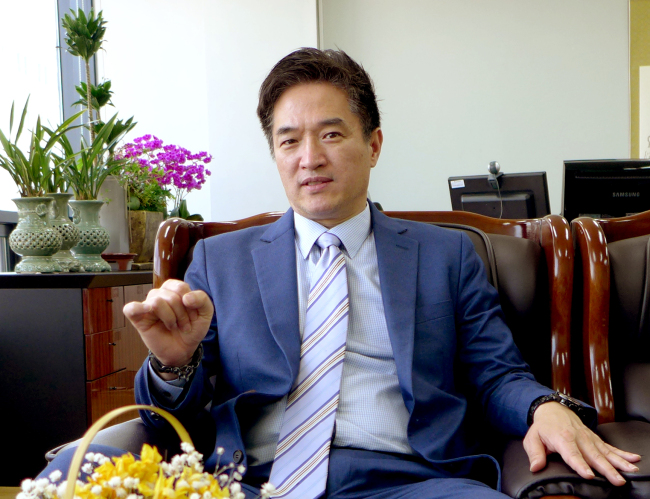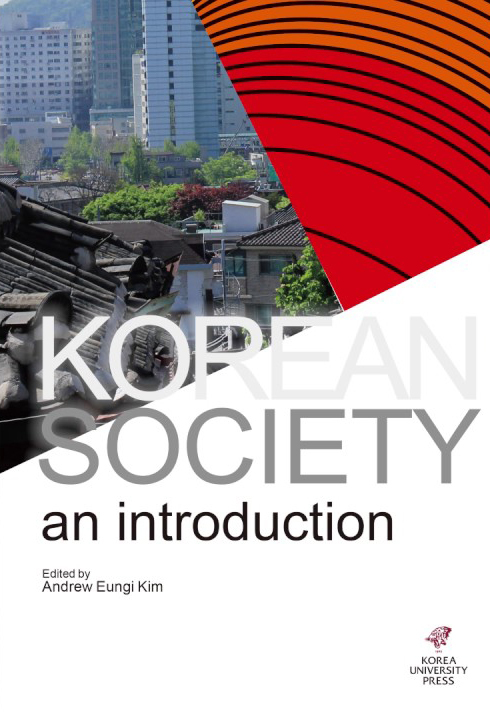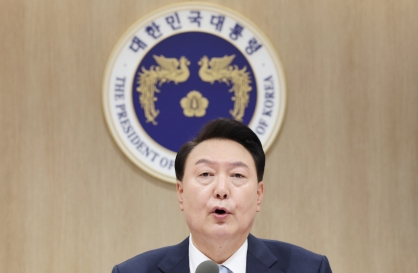[Herald Interview] Peering into Korean society with sociological imagination
Korea University Professor Andrew Eun-gi Kim illuminates nation-building in South Korea through the lens of “civil religion,” a term the academic has coined as a framework for analyzing national identity and its concomitant material progress.
By Joel LeePublished : Oct. 26, 2017 - 18:05
“Korean Society: An Introduction” by Andrew Eun-gi Kim; Korea University Press (732 pages, $30)
For observers of Korean society, including all its idiosyncrasies and mystique, a new book attempts to help interpret the country by offering a sweeping elucidation on crosscutting issues.
“Korean Society: An Introduction” is an academic compilation scrutinizing wide-ranging topics, covering ethnological culture, gender politics, family patterns, educational fever, nationalist religion, ageing society, multiculturalism and international marriage, the globalization of Hallyu, urbanization and its discontents, economic history, anti-Americanism and the challenges of reunification and totalitarian mythmaking in North Korea.
The book contains a series of articles written by various scholars, and was edited by Andrew Eun-gi Kim, who teaches at the Graduate School of International Studies and Division of International Studies at Korea University in Seoul. Kim, whose research has focused on the sociology of religion, ethnology, popular culture and comparative studies, is a sociologist and graduate of the University of Toronto.
Kim illuminates nation-building in South Korea through the lens of “civil religion,” a term the academic has coined as a framework for analyzing national identity and its concomitant material progress. Kim’s assertion centers on the notion that the country during its utilitarian heydays from the 1960s through ‘80s cultivated, and inculcated, an ideology of national destiny -- to propel and grease the wheels of economic growth.
For observers of Korean society, including all its idiosyncrasies and mystique, a new book attempts to help interpret the country by offering a sweeping elucidation on crosscutting issues.
“Korean Society: An Introduction” is an academic compilation scrutinizing wide-ranging topics, covering ethnological culture, gender politics, family patterns, educational fever, nationalist religion, ageing society, multiculturalism and international marriage, the globalization of Hallyu, urbanization and its discontents, economic history, anti-Americanism and the challenges of reunification and totalitarian mythmaking in North Korea.
The book contains a series of articles written by various scholars, and was edited by Andrew Eun-gi Kim, who teaches at the Graduate School of International Studies and Division of International Studies at Korea University in Seoul. Kim, whose research has focused on the sociology of religion, ethnology, popular culture and comparative studies, is a sociologist and graduate of the University of Toronto.
Kim illuminates nation-building in South Korea through the lens of “civil religion,” a term the academic has coined as a framework for analyzing national identity and its concomitant material progress. Kim’s assertion centers on the notion that the country during its utilitarian heydays from the 1960s through ‘80s cultivated, and inculcated, an ideology of national destiny -- to propel and grease the wheels of economic growth.

“The concept of civil religion refers to beliefs, symbols and rituals, as well as institutions, that reinforce social cohesion; legitimatize the socio-political system; and mobilize citizens to the nation’s common objectives,” Kim writes in the abstract of his article. “This paper argues that a strong civil religion exists in Korea and that it has been integral to its nation-building process. It also asserts that a succession of authoritarian governments from 1961 through 1993 had promoted civil religion to legitimate and mobilize masses for nationwide modernization and industrialization.”
If such a blind faith in the nation-state still exists in the Korea of today, it is evidently alive and well among the die-hard bands of ultraconservatives and nationalists. With minds molded in the cauldron of the Saemaul Undong during the period of a “developmental dictatorship,” these individuals wholly embraced and supported the nation’s breakneck expansion without regard for minorities or leftists.
Now in their 70s and 80s and out of sync with changing social norms, there is an almost religious dimension to their uncritical penchant for everything American, including the Donald Trump administration’s “America First” policies directed at the Korean Peninsula. They publicly express their pugnacious conviction in Korea’s own version of “alt-right” populism, as well as deep-seated antagonism toward North Korea. Though tapering off in numbers, they are still a force to be reckoned with in the country’s deeply polarized political landscape.
In an interview with The Korea Herald earlier this month, Kim claimed that civil, or nationalist, religion is universal, and particularly more pronounced in developing authoritarian societies. He asserted the concept could apply to North Korea, where the obsessive pursuit of nuclear and missile capabilities is constitutionally enshrined and societally extolled.
As civil religion spurs both state-building -- of army, infrastructure, schools and hospitals -- and nation-building -- through the indoctrination of national pride and community and a sense of belonging -- Kim’s analysis appears consistent with the worrisome developments in North Korea.
As for the possibility of grassroots, bottom-up revolution in the hermetically sealed kingdom -- the premise of the “democratization theory” -- Kim surmised that it is unlikely to occur, as the critical mass of well-heeled and well-schooled citizens in North Korea is yet to be found.

Kim also offered a healthy dose of criticism on the state of the Korean pop culture industry, which milks profits out of young talents in the absence of authentic artistry and creativity.
“In order for Hallyu to make a lasting impact, it needs to constantly reinvent itself for timeless great music, such as that of the Beatles, Rolling Stones, Pink Floyd, Elton John and Bob Dylan,” Kim stressed. “Korea’s music, drama and movie industries should turn their attention to nurturing talented artists who will be remembered across eras instead of churning out pretty boy bands and cutesy girl groups. Art comes first, money and profit come secondary.”
The scholar mentioned that the Chinese and Japanese governments have also sponsored their popular cultures aggressively on the world stage -- through Confucian Institutes and “Cool Japan” campaign, aimed at projecting their soft power.
Touching on educational reform, Kim pointed to the need for politicians to push ahead with policies benefitting the whole society, rather than catering to the vested interests of select groups.
“The proposal to close down special purpose high schools has been met by strong opposition from conservative groups in education,” he said, urging the government not to back down from its original commitment.
By Joel Lee (joel@heraldcorp.com)











![[KH Explains] How should Korea adjust its trade defenses against Chinese EVs?](http://res.heraldm.com/phpwas/restmb_idxmake.php?idx=644&simg=/content/image/2024/04/15/20240415050562_0.jpg&u=20240415144419)







